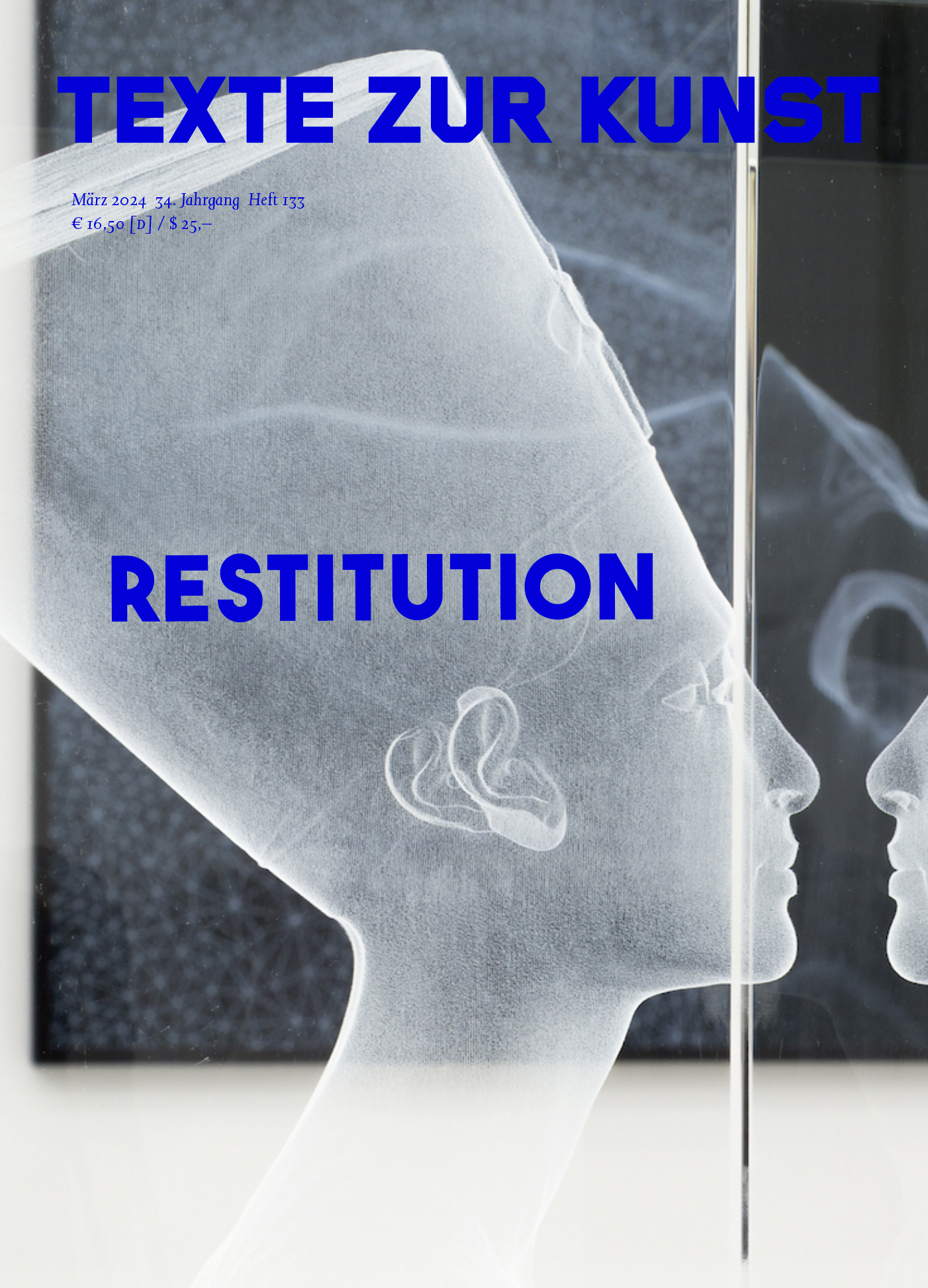Colonial-era looted artifacts make headlines on a regular basis. Recently, for example, German museums began transferring ownership of the so-called Benin Bronzes to the Nigerian government. This prompted objections from the Restitution Study Group, an organization based in New York, arguing that the measure failed to take into consideration the claims to reparations made by descendants of enslaved people in the diaspora. Restitution has a long history and is often a considerably more complex matter than one might gather from debates in the feuilletons of newspapers. This issue of TEXTE ZUR KUNST explores the interplay of historical and contemporary power relations involved in negotiating claims to pieces of cultural heritage. Its contributions by scholars and artists sketch the potentials of restitution. Past instances of repatriating cultural assets illustrate the multidimensionality of negotiations that pave the way for restitution, and of the processes of integration that follow.
Memory Biwa and Bénédicte Savoy discuss the terminological dimension of the discourse on restitution and its epistemological underpinnings in a conversation with Mahret Ifeoma Kupka und Irene V. Small, who co-conceptualized this issue. Their roundtable also considers the presence and absence of cultural heritage, reflecting on countries including Namibia. Alexandra M. Peck shines a spotlight on the repatriation of parts of the so-called Potlatch Collection to show what it can mean when material culture actually returns after a long absence. In the Indigenous Kwakwaka’wakw communities, these objects originally served to consolidate transgenerational claims to property, authority, and legal titles; their settler-colonial confiscation disabled this socially stabilizing function. After their gradual return, beginning in the 1970s, the objects became museum exhibits, altering their status within the Kwakwaka’wakw communities. The challenges posed by colonial-era looted artifacts are illustrated by the object biography of a bronze from the collection of Rudolf Mosse. Having entered the European art market through the British military, it was acquired by the Berlin-based publisher and then seized in turn by the Nazis during their violent persecution of the Jewish population. This history lets Alexandra Germer reveal the complications that provenance scholarship confronts. Instead of adjudicating between competing claims of historical injustice, she argues, we must try to see the interconnections between the different contexts in which objects were taken from their rightful owners.
[+]